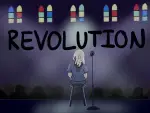A fourth stimulus check seems unlikely so soon after the previous stimulus check, which many Americans have yet to receive, but several representatives have shown interest in continuing payments to Americans in need.
Rep. Omar’s Proposal
In a letter spearheaded by Rep. Ilhan Omar of Minnesota, the congressperson presents many of the problems with the current stimulus programs that many Americans are struggling with. The letter, cosigned by 52 additional U.S. House members, presents the necessary attributes of any future cash stimulus package:
- “Continue until the economy recovers with equal payments to adults and dependents”
- This point is important for two reasons. It presents the need for stimulus checks to continue until the economy recovers fully — not simply until vaccinations begin or until jobs begin hiring again, but until the economy returns to its pre-pandemic state. It also argues for the necessity of equal payments to adults and dependents due to the costs associated with raising children.
- “Prioritize those who need it most and will spend it the quickest”
- Prioritizing those who need stimulus checks most is obviously important, but prioritizing those who will also spend the money quickly is crucial because it will lead to more economic stimulation and get the economy back into the cycle.
- “Go to all immigrant workers, refugees, and their families (both ITIN filers and mixed-status households)”
- The persistent narrative promoted by figures such as Donald Trump, that immigrants are receiving benefits from the government without contributing, is false, and this point calls to ensure that immigrants, refugees and their families are granted the same benefits as others who pay taxes.
- “Include older dependents such as disabled and elderly dependents and those over the age of 16 still claimed as dependents”
- Many dependents are over the age of 16 and need to be considered eligible for stimulus checks, as they have the same, arguably more, expenses as other dependents.
- “Add improved administrative outreach and communication at the state and local level to ensure families are aware of payments”
- One of the problems with previous and current stimulus checks is that people are not receiving them even though they qualify. This problem has been especially apparent with the number of people experiencing homelessness who have struggled to cash their stimulus checks. Because most people experiencing homelessness make under the $12,000 threshold for filing taxes, they must register with the IRS to receive a stimulus check. In-depth procedures for those experiencing homelessness that wish to receive stimulus payments can be found on the IRS website.
- “Ensure the Internal Revenue Service makes automatic payments available to all eligible households with better outreach to individuals left behind in previous rounds, including the underbanked and unbanked through pre-loaded EBT cards and those who had erroneous, delayed, or missing payments through improved casework assistance”
Economic Revival
One of the reasons that a fourth stimulus check is unlikely is the slow revival of the American economy. Americans have slowly seen the decrease in unemployment rates, which, according to the Balance, “peaked in April 2020 at nearly 15%, but by December 2020 that rate had fallen to 6.7%.” Unemployment rates, while they have returned to relatively normal figures, are arguably still unacceptable. An important distinction that many people fail to recognize when analyzing unemployment rates is that they only measure those who are actively seeking employment and are unable to find it. The 6.7% unemployment rate that was observed in December of 2020 applied only to those who actively struggled to find employment, not “discouraged” workers who have temporarily ceased looking for work. The reopening and revival of the economy has led many to oppose a fourth stimulus check because the steady growth of the economy is interpreted as grounds to oppose relief to those who continue to struggle.
Vaccinations
Another reason that a fourth stimulus check is unlikely is due to the successful and somewhat efficient vaccination of Americans. According to NBC News, approximately 56 million people were fully vaccinated as of April 2, and the number of those who have received the first shot of the vaccine is even higher.
WebMD explains the concept of herd immunity: “Herd immunity, or community immunity, is when a large part of the population of an area is immune to a specific disease. If enough people are resistant to the cause of a disease, such as a virus or bacteria, it has nowhere to go. While not every single individual may be immune, the group as a whole has protection. This is because there are fewer high-risk people overall. The infection rates drop, and the disease peters out.” WebMD continues to explain that once 50% to 67% of people are immune to a virus, herd immunity will start to dramatically decrease the number of new cases. While the United States is still weeks away from herd immunity, it is definitely obtainable in the near future and will begin decreasing the number of new cases of COVID-19 significantly.
Explaining Reconciliation Bills
Finally, it is important to understand that the most recent stimulus check passed as a reconciliation bill, which does not require cross-party support and thus did not require votes from Republicans to pass. The problem is that these bills are only able to be passed once per fiscal year without cross-party support. The current fiscal year ends in October, six months from now. Unless Democrats are somehow able to gain cross-party support from Republicans for the prospect of a fourth stimulus check, it is quite an unlikely prospect.
Conclusion
The proposal of a fourth stimulus check, originally spearheaded by Rep. Ilhan Omar, was significant in that it provided a framework for a stimulus that is inclusive and addresses many of the problems that Americans have faced with previous checks. However, the prospect is unlikely due to the recent revival of the economy, the continuing vaccination of Americans and the status of the previous stimulus bill as a reconciliation bill.

















